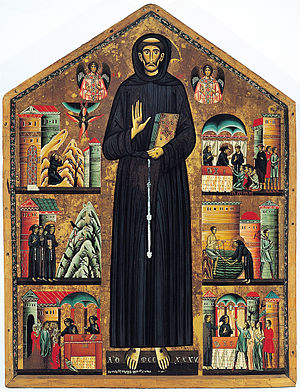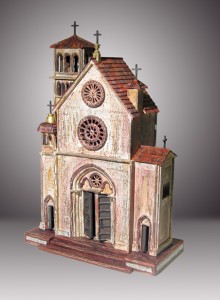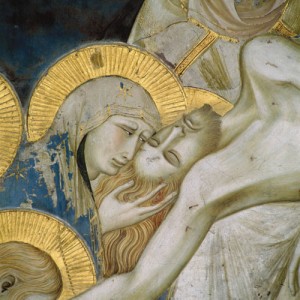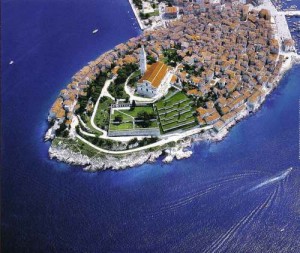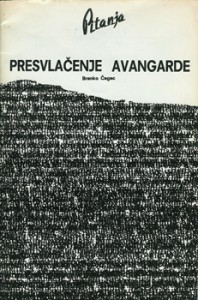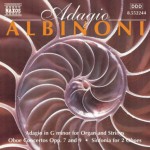Poetry in Translation (CCXIII): Francis of ASSISI,(1181/1182, Assisi, Umbria – October 3, 1226, Assisi), Poet of UMBRIA, “Preghiera”, “Prayer”, “Rugăciune”
Preghiera
(San Francesco d’Assisi)
Oh Signore, fa di me uno strumento della tua pace
dove è odio, fa che io porti l’amore
dove è offesa, che io porti il perdono,
dove è discordia, che io porti l’unione,
dove è dubbio, che io porti la fede,
dove è errore, che io porti la verità,
dove è disperazione, che io porti la speranza,
dove è tristezza, che io porti la gioia,
dove sono le tenebre, che io porti la luce.
Maestro, fa che io non cerchi tanto
di essere consolato, quanto di consolare,
di essere compreso, quanto di comprendere,
di essere amato, quanto di amare.
Perchè è
dando, che si riceve,
perdonando, che si è perdonati,
morendo, che si resuscita a vita eterna.
Prayer
Saint Francis of ASSISI
Lord, make me an instrument of your peace.
Where there is hatred, let me sow love.
Where there is injury, pardon.
Where there is doubt, faith.
Where there is despair, hope.
Where there is darkness, light.
Where there is sadness, joy.
O Divine Master,
grant that I may not so much seek to be consoled, as to console;
to be understood, as to understand;
to be loved, as to love.
For it is in giving that we receive.
It is in pardoning that we are pardoned,
and it is in dying that we are born to Eternal Life.
Amen.
Rugăciune
Sf. Francisc din Assisi
(1181/82 – 3 Octombrie, 1226)
O, Doamne, Dumnezeule, lasă-mă să primesc pacea ta.
Acolo unde este ură, lasă-mă să pot semăna iubire.
Unde este daună, iertare.
Unde este îndoiala, credință.
Unde este disperare, speranță.
Unde este întuneric, lumină.
Unde este tristețe, bucurie.
Doamne, Dumnezeul meu,
daruieşte-mi, nu atât mângâierea, cât putința de a mângâia;
nu atât harul de a fi înțeles, cât să pot înțelege;
nu să fiu iubit, cât să pot iubi.
Căci prin dăruire de sine putem primi,
prin iertare putem fi iertați,
și prin moartea spre moarte putem afla viață veșnică.
Amin.
Versiune în limba Română
Constantin ROMAN, Londra,
© 2013, Copyright Constantin ROMAN
San Francisco de Assísi
Oh, Señor, haz de mí un instrumento de Tu Paz .
Donde hay odio, que lleve yo el Amor.
Donde haya ofensa, que lleve yo el Perdón.
Donde haya discordia, que lleve yo la Unión.
Donde haya duda, que lleve yo la Fe.
Donde haya error, que lleve yo la Verdad.
Donde haya desesperación, que lleve yo la Alegría.
Donde haya tinieblas, que lleve yo la Luz.
Oh, Maestro, haced que yo no busque tanto ser consolado, sino consolar;
Ser comprendido, sino comprender;
Ser amado, como amar.
Porque es dando, que se recibe;
Perdonando, que se es perdonado;
Muriendo, que se resucita a la Vida Eterna.
Amén.

